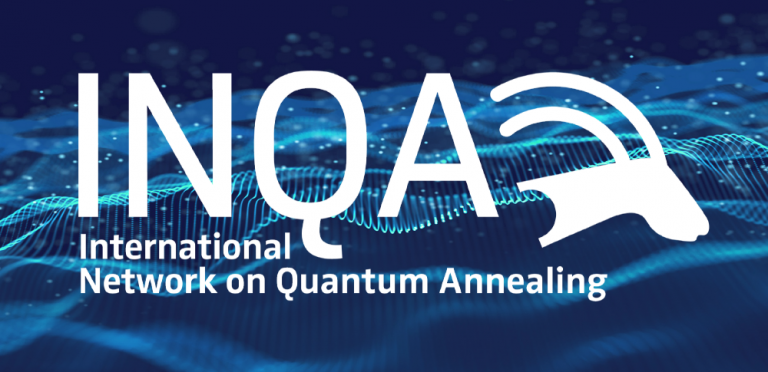An International Network on Quantum Annealing

The International Network on Quantum Annealing (INQA) will for the first time establish a mechanism by which four global collaborations come together to share technical and intellectual know-how and critically analyse developments in theoretical and experimental research in quantum annealing.
Upcoming Seminars
- 30 July 2024 | 16:00 UTC | Yuval Baum | Q-CTRL
- Scaling quantum optimization to the utility scale
Quantum computing holds promise for revolutionizing how we solve complex optimization problems that are ubiquitous in various fields like logistics and networking. However, current noisy quantum hardware limits the applicability of hybrid quantum-classical algorithms that are theorized to perform well in ideal conditions. This study showcases how a novel hybrid algorithm combined with a comprehensive error suppression pipeline can efficiently solve large-scale binary optimization problems, pushing the boundaries of what is currently possible with existing quantum hardware and bringing us closer to an era where quantum computers can solve relevant real-world problems. Our novel implementation of QAOA demonstrates exceptional performance in solving binary-optimization problems on a 127-qubit gate-model IBM quantum computer by leveraging advanced error suppression techniques. We solve MaxCut on graphs up to 120 nodes and consistently find the maximal cut. For 127-node cubic spin-glass problems, we found the true ground state for 4 of the 6 problems we studied, including for a problem where a quantum annealer previously failed to find the solution.
- 03 September 2024 | 08:00 UTC | Yuya Seki | Keio University
Title: TBC
Abstract: TBC
Visit past seminars to view a list of all of our past seminars and their abstracts.
If you miss any of our live seminars you can watch our previous sessions on our YouTube Channel.
About INQA
The INQA network unifies the research activities of major global collaborations in quantum annealing in North America, Japan, the European Union and the United Kingdom.
By hosting weekly on-line seminars and annual international conferences and by funding exchange visits, the INQA network will address the key topics which will enable quantum annealing to move towards a true quantum scaling advantage over classical approaches to NP-hard computational problems.
The topics INQA will focus on include:
- Exploiting quantum coherence
- Extending the order and degree of qubit interactions
- Strategies for error correction
- Exploiting diabaticity and non-stoquasticity in a systematic way
The network will be led by Professor Paul Warburton of UCL, who is a co-investigator in the UK’s Quantum Computation and Simulation (QCS) Hub and in the recently-announced QEVEC project. He was also previously a co-investigator in the US-led QEO and QAFS collaborations.
Members of the management board include:
- Prof Paul Warburton (UCL, UK)
- Dr Pol Forn-Díaz (IFAE, Spain)
- Dr Shiro Kawabata (AIST, Japan)
- Prof Viv Kendon (University of Strathclyde, UK)
- Dr Jamie Kerman (MIT Lincoln Lab, USA)
INQA is supported by a International Network Grant from the UK Engineering and Physical Sciences Research Council.
 Close
Close

